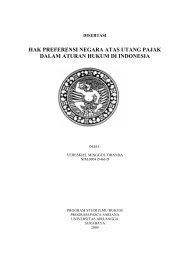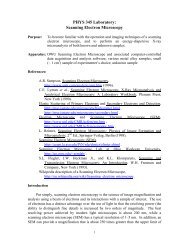Nietzsche's Naturalistic Ethics - UNAIR | E-Book Collection
Nietzsche's Naturalistic Ethics - UNAIR | E-Book Collection
Nietzsche's Naturalistic Ethics - UNAIR | E-Book Collection
Create successful ePaper yourself
Turn your PDF publications into a flip-book with our unique Google optimized e-Paper software.
general Nietzschean stance towards Korsgaard’s Kant than the rejection of that objection. Anilluminating way of further developing this stance is to focus on Nietzsche and Kant’s respectiveideals of unity of agency. Once that stance is in place, it emerges that no useful appeal to Nietzschecan be made in support of Korsgaard’s Kant, and does so while showing that Nietzsche is not onlyan astute critic of traditional moral theory, but also accompanies his critiques with substantivepositive insights. To facilitate the sketch of this Nietzschean stance (a stance viz-a-viz a more visibleopponent), I introduce a second objection to the Kantian view.This second objection proceeds as follows. Even if the Kantian picture of the mind is notmisguided, the derivation of the Categorical Imperative is. Thus the Kantian picture fails on its ownterms. The objection is that Kant’s argument fails to show that a rational agent must see his actionsas constrained by her owing equal consideration to every other rational being. It fails to show thatan agent must respect humanity in every agent as much as in herself and can never use any agentmerely as a means. While drawing on the folklore surrounding the Categorical Imperative, thisargument dovetails with Nietzsche’s concerns about universal commands (cf., e.g., (TI, Anti-Nature,6). The problem arises towards the end of the argument in 4.1, in the part that tries to demonstratethat no rational being should ever be used merely as a means. Neither a perversity nor a contradictionarises, contrary to what the argument claims, if I am using you as a means to ends that have valuebecause I have conferred it upon them. Sure enough, because I have given them value I must thinkof myself as having value. This is true for you as well, mutatis mutandis. Yet what this does not showis how my acknowledgment of the fact that you confer value constrains how I relate to you. Theargument demonstrates how you become intelligible to me as an agent, how I come to see youractions as more than mere events, namely by coming to realize that, in a fundamental way, we arealike. While our shared humanity creates enough community between us to make us intelligible to31
















